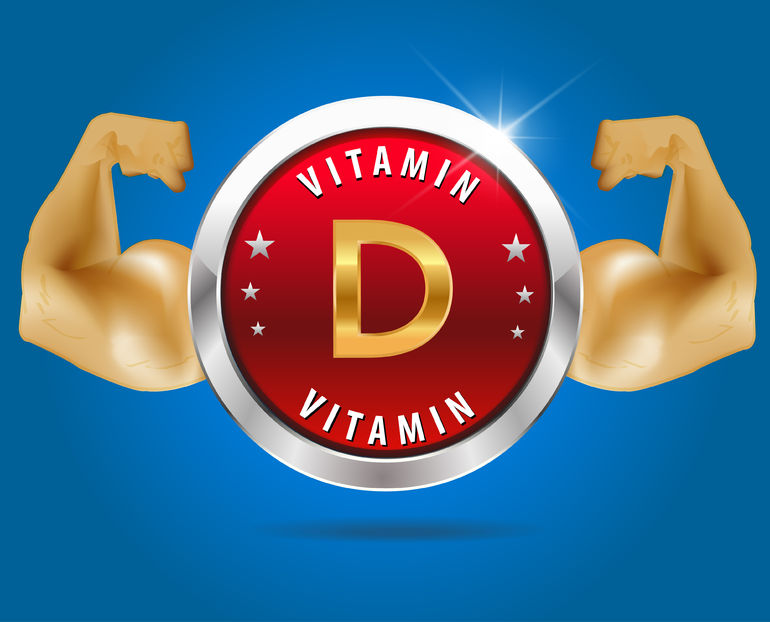Thinking About Vitamin D
If you visited the blog last week, you heard about my recommendations for the new year. And if you are taking that daily multivitamin, you’re probably beginning to think: this is TOO easy. Once you start taking a daily multivitamin, it’s natural to start wondering about other vitamins that might benefit you. This is particularly true if you are a competitive athlete or if you are elderly – two groups interested in maximizing and maintaining performance.
Vitamin D is an essential fat-soluble substance that produced by the body when the skin is exposed to sunlight.
Vitamin D is also present in certain foods and in nutritional supplements as cholecalciferol or ergocalciferol. Vitamin D from sunlight or diet is converted in the kidney to its active form, calcitriol. Vitamin D encourages calcium absorption to support healthy bones; Vitamin D deficiency can present as bow-legged “rickets” in children and muscle weakness or bone pain and fractures in adults. But Vitamin D also decreases inflammation and influences cell growth, as well as nerve, muscle and immune function; it protects against colon cancer. These are adequate reasons to wonder about your Vitamin D intake and whether more might be better.
Historically, we’ve gone from the age of bow-legged kids 100 years ago to foods supplemented with vitamin D, interspersed with periods when at least some people were concerned that too much vitamin D might produce adverse health effects. The current trends have most clinicians worrying about too little Vitamin D and seeking optimal dosages for various patient groups.
Blood levels of Vitamin D are the best indicator of Vitamin D status.
While optimal blood levels of Vitamin D have not been established, levels below 30ng/mL are associated with deficiency symptoms and levels above 150ng/mL as associated with adverse effects. Watch for a VitD blood test next time you have a physical exam.
A study published this week in JAMA examined the effect of Vitamin D treatment on functional decline in the elderly. The one-year study recruited 200 patients over 70 years old and living in a community setting. Patients received higher doses of Vitamin D once each month; Vitamin D stays in the body for several weeks, so this was reasonable. Patients were divided into groups that received one of three Vitamin D dosages. There were lower and higher doses of Vitamin D studied, plus a group which received the lower dosage in combination with another Vitamin D precursor. The participants were studied for Vitamin D levels and for leg strength; the number of falls by participants in each group were also recorded. More than half the patients were Vitamin D deficient at the start of the study. While Vitamin D levels were increased during the study, there was no improvement in leg strength and function, but there was an increase in falls in the higher dosage groups. The bottom line is that increasing Vitamin D levels may help in some areas, but not in leg strength and function, and increasing Vitamin D levels may encourage falls in some patients.
All this Vitamin D information illustrates some general principles regarding vitamin supplementation:
- Optimal dosages sometimes can differ between individuals depending on things like age, family history and disease state(s).
- There is some optimal dosage above which there is limited benefit obtained in the face of increasing risk of unwanted effects.
- Adverse effects are more easily seen in vulnerable patients, like small children and the elderly.
Recommended dosages are based on safety and effectiveness in large groups of people; unless there is a compelling reason, these are the best dosages to use.
So, stick to a daily multivitamin. Avoid the move to mega-vitamins until you have the opportunity to discuss your plans with your primary care physician and pharmacist. They can help you avoid the hype and make the best health decisions for YOU.
Resources:
Vitamin D Fact Sheet
https://ods.od.nih.gov/factsheets/VitaminD-HealthProfessional/
Monthly High-Dose Vitamin D Treatment for the Prevention of Functional Decline
http://archinte.jamanetwork.com/article.aspx?articleid=2478897












